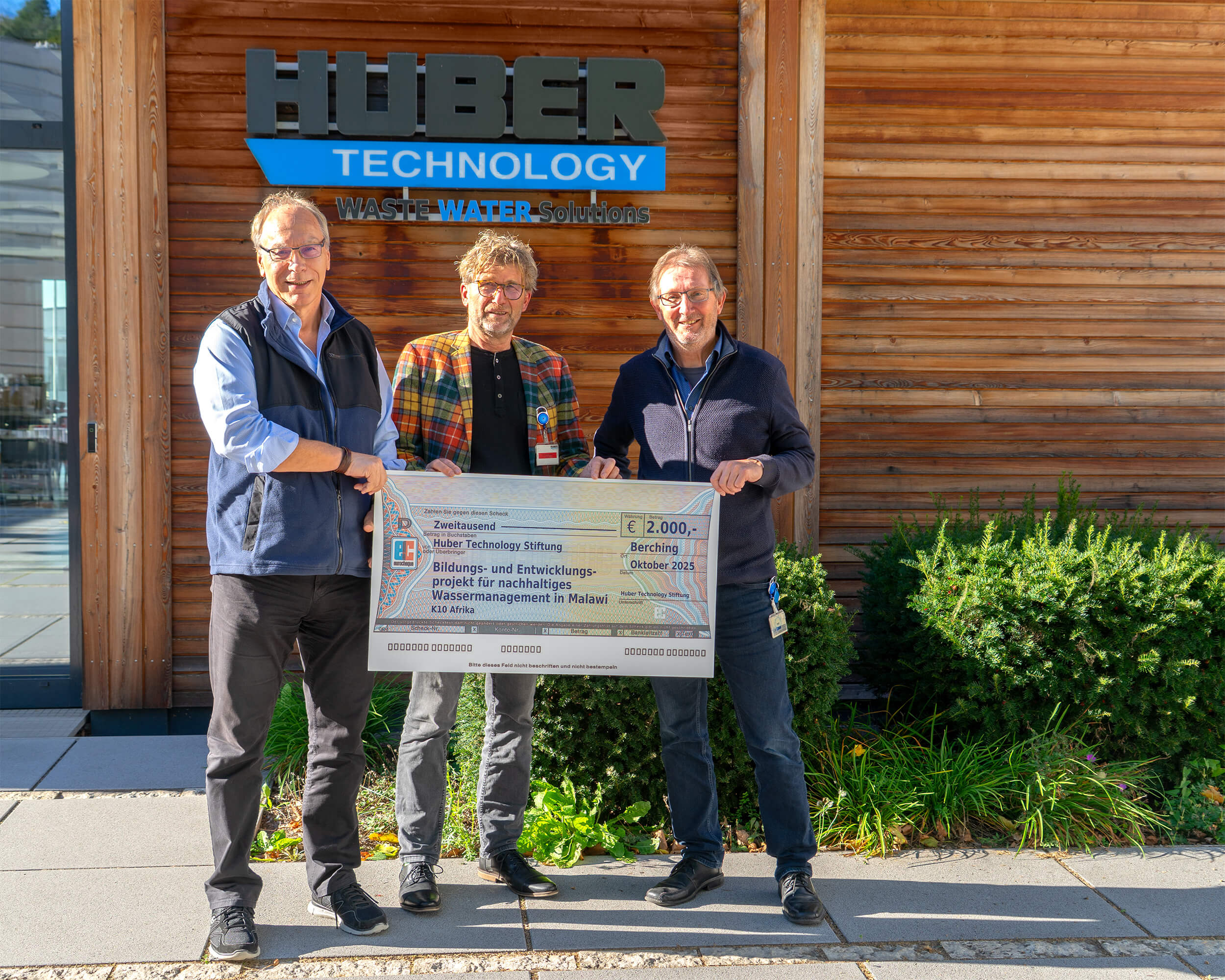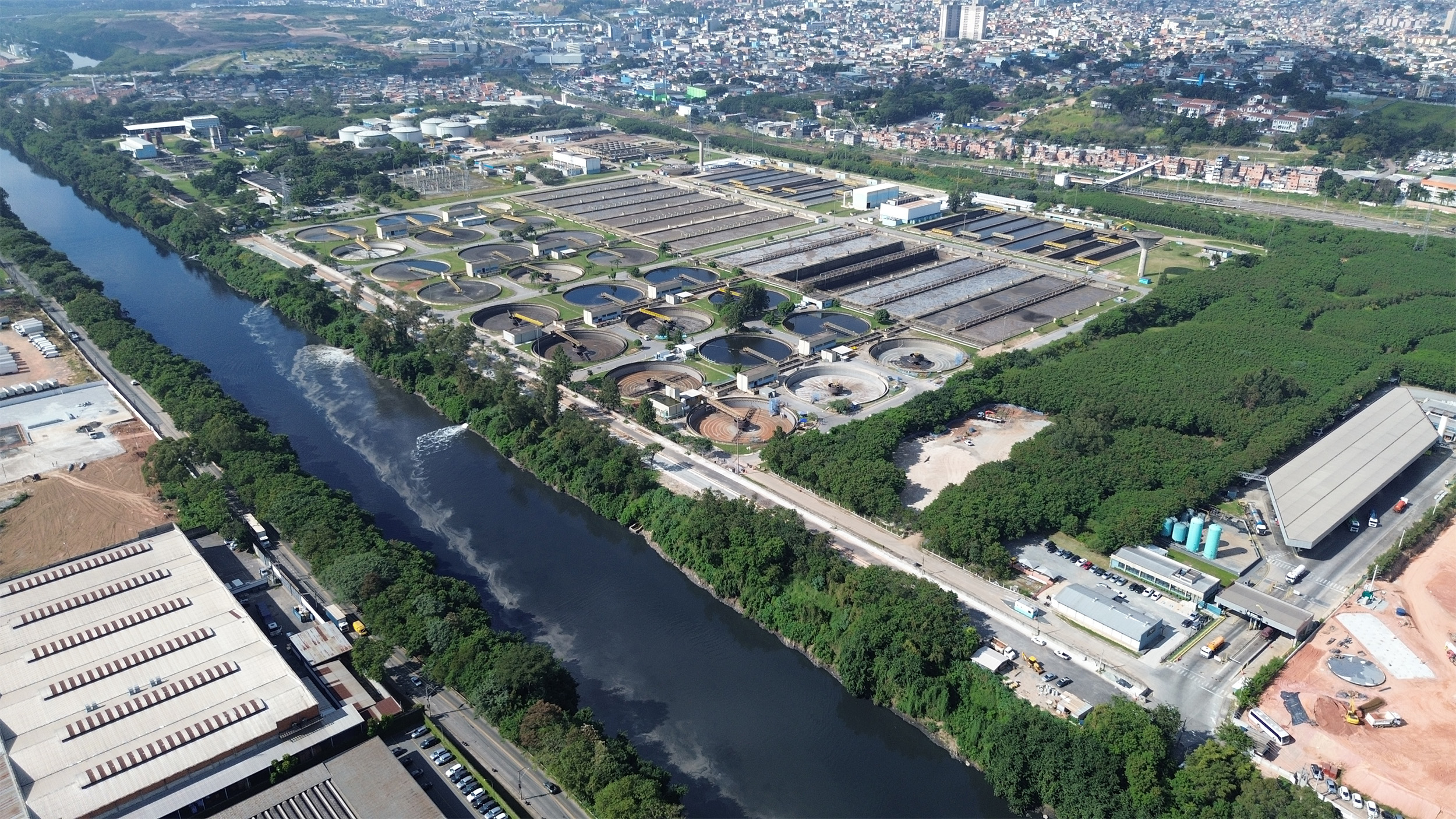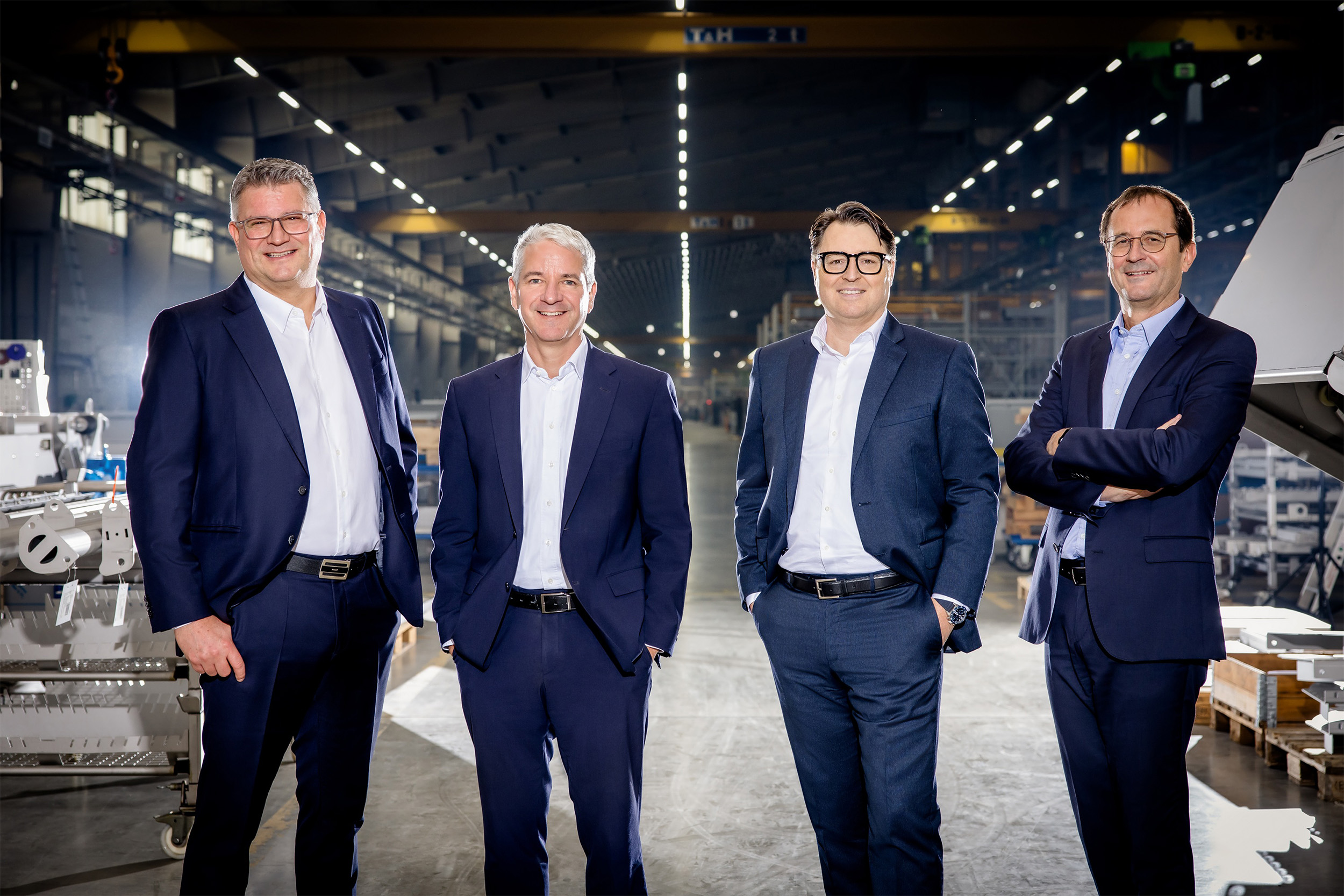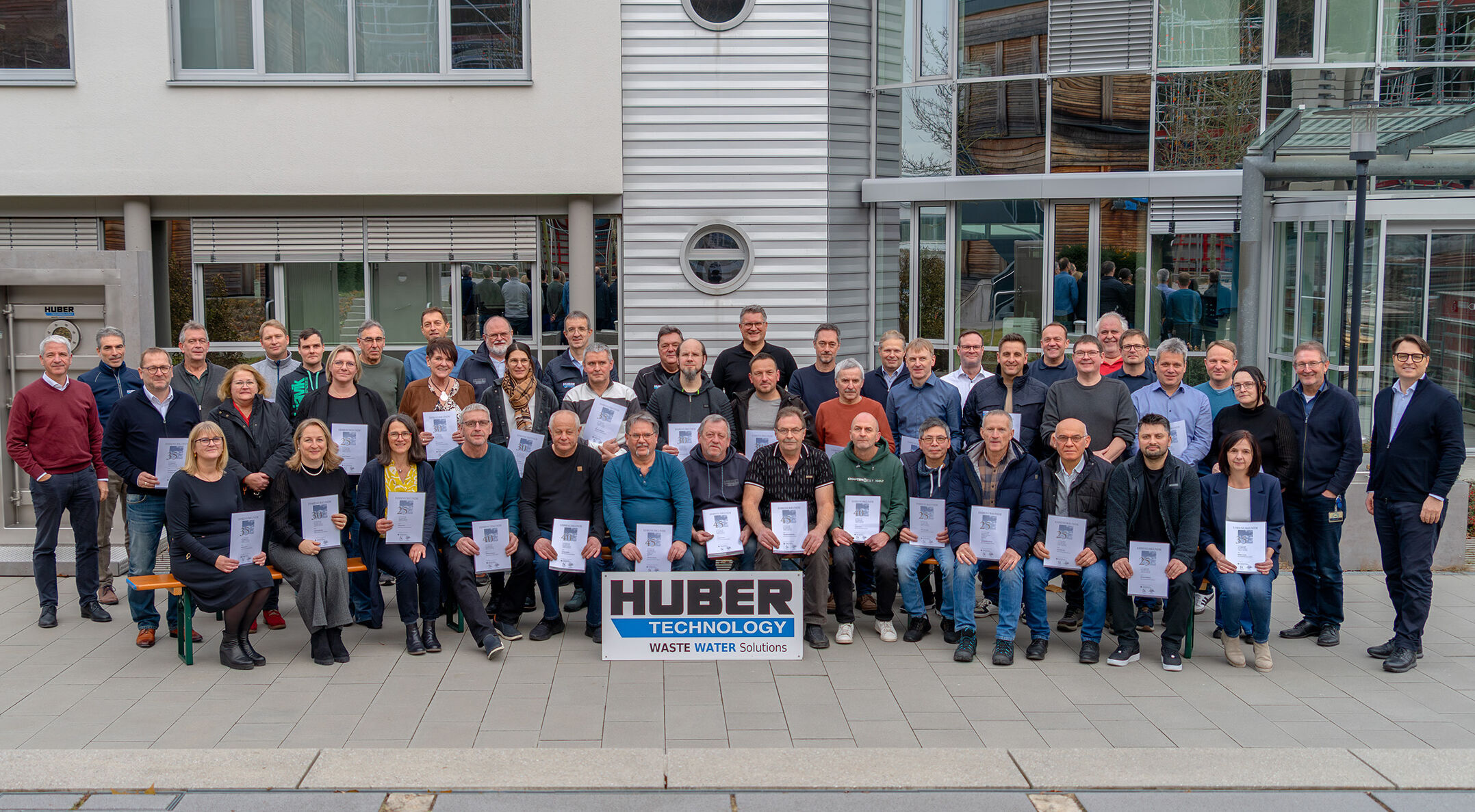Valuing water – securing the future: Huber Technology Foundation supports sustainable water management project in Malawi with €2,000


‘Water is life, but only if it is used responsibly,’ says Prof. Dr. Franz Bischof, Chairman of the Huber Technology Foundation. ‘That is why we support initiatives that view water not only as a resource, but as a valuable commodity that must be treated with care.’
The project focuses on training in water-saving techniques for use in hygiene, agriculture and sanitation. For example, waterless composting toilets are being introduced in participating villages, and people are being taught how to use them. Local people are also learning how to reduce water consumption in vegetable and fruit cultivation through targeted irrigation, while at the same time increasing yields.
Specific objectives of the project
- Training of the 19 participants in the one- or two-year trainee programme at the training farm in water-saving irrigation techniques
- Support in the construction and operation of composting toilets. Training on how these contribute to the production of organic fertiliser, in close cooperation with local traditional chiefs (the training farm almost exclusively uses composting toilets)
- Measurable reduction in water consumption in vegetable cultivation in the participating village communities through the use of hydroponic crops
Heinz Stengel, initiator and project manager of K10 Africa, emphasises the importance of the funding: ‘With the support provided by the Huber Technology Foundation, we can make concrete improvements to living conditions in the villages of Malawi.’ Water is a scarce commodity there. Through education, appropriate technology and local responsibility, we are achieving a sustainable impact.’
With this funding, the foundation is setting an example for global responsibility, sustainable development – and the power of knowledge in dealing with water.
The Huber Technology Foundation is providing €2,000 in funding for an education and development project run by the non-profit organisation K10 Afrika. The project aims to promote the conscious and economical use of water in rural Malawi, particularly during the dry season when water shortages are common and can last up to eight months of the year.



